June 7 - 13, 2020: Issue 453
World Oceans Day 2020: Our Ocean Our Future
Residents will celebrate World Oceans’ Day, June 8th in thousands of different ways – on the beaches, in the seas, on the estuary – surfing, swimming, sailing, lifesaving, kayaking, paddling, fishing, taking a stroll along the beach, watching whales swim north from our headlands.
Our yacht clubs and Marinas are Clean Marina Program and Fish Friendly Marinas adherents, our fishing clubs and their members follow the rules for fish limits and sizes and look after the seaweed beds that are nurseries for fish, Operation Crayweed to restore Sydney’s underwater forests as habitat for underwater creatures stems originally from Palm Beach crayweed, the NSW DPI restocking Narrabeen lagoon with prawns, respecting what our Aquatic Reserves are for and sharing what may be found there with the younger generations, respecting the Wildlife Preservation Areas and ensuring these are safe places for what lives there, our local bushcare groups rehabilitating beach dunes, riparian corridors, and creeks that flow through wetlands into lagoons, resident Sydney Wildlife carers are out saving shorebirds, turtles, water snakes, ORRCA volunteers are out saving seals, whales, dolphins, the Friends of Narrabeen Lagoon Catchment which aim, through advocacy and education to preserve the Narrabeen Lagoon catchment, its bushland, creeks, flora, fauna and cultural sites and to seek to reduce pollution and degradation of these, the National Parks and Wildlife Service doing wonders for the fairy penguin colony on Lion Island and at Manly.
You don’t have to tell locals to pick up rubbish and plastics when they see it; we know what the tides bring in. Avalon, Narrabeen and Manly Boomerang Bag makers live here, they were backed up from the outset by their local government representatives and state MPs, Beach cleans are an ongoing focus with people of diverse backgrounds and interests coming together, for years now, through groups such as The Green Team, Living Ocean (Live a Plastic Free Life, No Offshore Drilling, Whale Data collection), the Northern Beaches Clean Up Crew, the Surfrider Foundation Manly and Surfrider Foundation Northern Beaches, Dragonfly Environmental, and even on a daily basis, residents cleaning up the beaches just because that's what we all do.
The Australian Marine Conservation Society was formed over 50 years ago by a community of scientists and ocean conservationists, who came together to take action to protect our marine life.
Their message for World Oceans Day 2020?:
Australians have a deep bond with our oceans. As inhabitants of the largest island on earth, it is our great privilege to grow up surrounded by an amazing diversity of life and colour.
It is this great love, and pride for our oceans, that drives us every day. If you want a future for our threatened Australian Sea Lions, our vulnerable turtles, or our awe-inspiring ocean giants, join your passion with ours and help us save our oceans today.
World Oceans Day gives an opportunity for our community to celebrate and reflect on our bond with the ocean. It’s a day for inspiration and collaboration, as we seek a future that supports a healthy ocean for a healthy planet for us all.
This World Oceans Day, we are working together to protect 30% of the world’s oceans by 2030. That’s less than 10 years away! By safeguarding at least 30% of our oceans with highly protected marine sanctuaries, we can have healthy oceans full of life for generations to come.
Our Federal Government established the Australian Institute of Marine Science, the Australian Antarctic Division. Australia was instrumental in the creation of the Antarctic Treaty in 1959, Australia and France led diplomatic discussions that resulted in a mining ban in the Antarctic in 1989. It was an Australian government that proposed an end to ‘scientific’ whaling and commercial whaling at the 2010 IWC meeting then backed up breaches in the International Court of Justice. Right now, Australia is taking the next step in our Antarctic legacy by leading the charge for an East Antarctic Marine Park.
The Commission for the Conservation of Antarctic Marine Living Resources (CCAMLR) will hold the Thirty-ninth Meeting of the Commission, due to take place from Monday, October 26, 2020 to Friday November 6 2020. The CCAMLR was established by international convention in 1982 with the objective of conserving Antarctic marine life. This was in response to increasing commercial interest in Antarctic krill resources, a keystone component of the Antarctic ecosystem and a history of over-exploitation of several other marine resources in the Southern Ocean.
The Secretariat (international Headquarters) is at 181 Macquarie Street, Hobart, with 26 Members and a further 10 countries have signed the Convention.
In 2016 CCAMLR reached consensus and the Ross Sea Marine Protected Area in Antarctica, was established. The Ross Sea region Marine Protected Area covers 1.55 million square kilometres, of which 1.12 million square kilometres, or 72%, is fully protected (no fishing is permitted). It is the world’s largest Marine Protected Area.
The duration of the MPA has been set at 35 years for the General Protection Zone, with a consensus decision by the CCAMLR membership required to continue the MPA beyond this period.
A lower period of duration was agreed for the management provisions in the Special Research Zone. These restrictions on fishing will expire after 30 years, at which time the Scientific Committee will consider whether other measures are required to meet agreed science and protection objectives.
This MPA was preceded by the South Orkney Islands southern shelf MPA (established in 2009).
Australia and the European Union are proposing an East Antarctic Marine Protected Area to contribute to a representative system of Antarctic MPAs. The East Antarctic MPA proposal provides important scientific reference zones for measuring the natural variability and long term changes in Antarctic marine living resources and ecosystems, essential for achieving sustainable fisheries and for estimating the long-term conservation requirements of the region.
The area contains sites of long term monitoring of marine mammals, seabirds and the formation of Antarctic Bottom Water, as well as areas important for understanding climate change impacts on Southern Ocean ecosystems and processes without interference. The size of the MPA is determined by the important summer foraging requirements of marine mammals, Adélie and Emperor penguins, and other seabirds during critical breeding periods and by its value for monitoring large scale ecosystem processes.
The East Antarctic MPA has been under consideration by the Commission since 2012. The next opportunity to progress the East Antarctic MPA proposal will be at the annual meeting of CCAMLR in Hobart in October. Hopefully that meeting can go ahead.
Our Federal Member for Mackellar, Jason Falinski, when contacted this week about World Oceans Day 2020, stated, “It is our responsibility here on the Northern Beaches to protect our beautiful beaches and waterways. From Palm Beach down to Manly the Pacific Ocean provides us with a big part of our lifestyle.”
“I want to also use this day to reaffirm my commitment in opposing any drilling off the coast of the Northern Beaches.”
On this day Mackellar MP, Jason Falinski has demanded community commitment to Australia’s marine environment particularly here on the Northern Beaches. Seventy percent of the world’s oxygen comes from the ocean, and therefore while it may seem self-serving for a beaches community to demand action, an unhealthy marine environment will affect everyone.
The Federal Government has committed one hundred and sixty-seven million dollars to combat the amount of plastic waste entering our ocean through the Australian Recycling Investment Plan. This is in conjunction to the pre-existing ban of microbeads made by the liberal government.
“Thirteen million tonnes of plastic are estimated to enter our oceans across the world. This is why I support the Australian Recycling Investment Plan which will reduce the amount of plastics entering the ocean.”
Mr Falinski said: “We all need to think about what we can do to reduce our own use of plastics and non-recyclable materials. The less household rubbish we produce, the less likely it is to end up in our oceans.”
“World Oceans Day is one day that deserves more prominence and as a member of the Northern Beaches, I will continue to advocate for good government policy to protect our ocean environment.”
A Tale Of Two Battlefronts: Noel & Kate Kessel
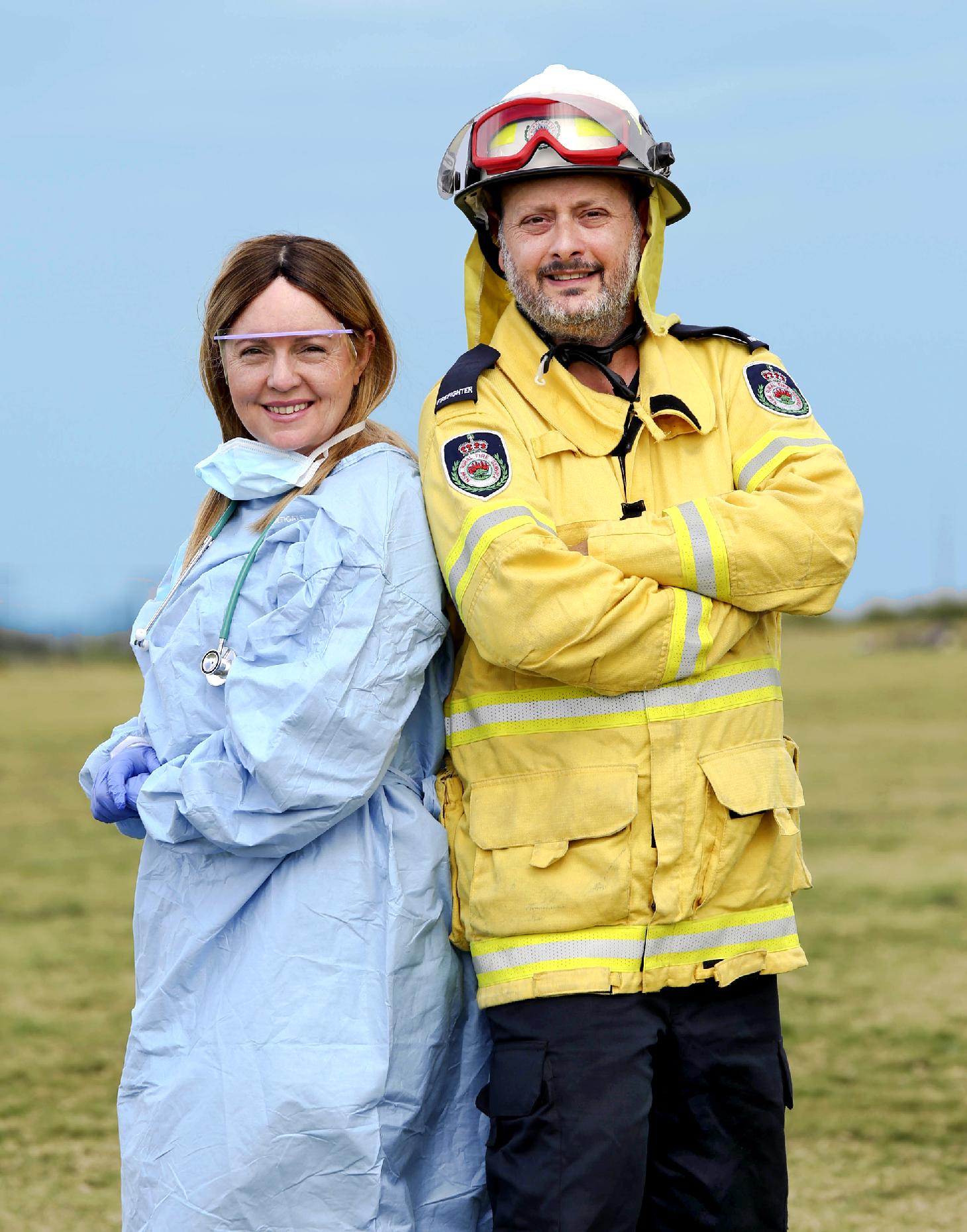
Kate and Noel Kessel - CPRFB photo
Noel Kessel is a member of Cottage Point RFS Brigade. Over the Summer months he and his colleagues spent many days out on the frontline battling the deadly bushfires around the State.
Noel and Kate share some insights this Issue - HERE
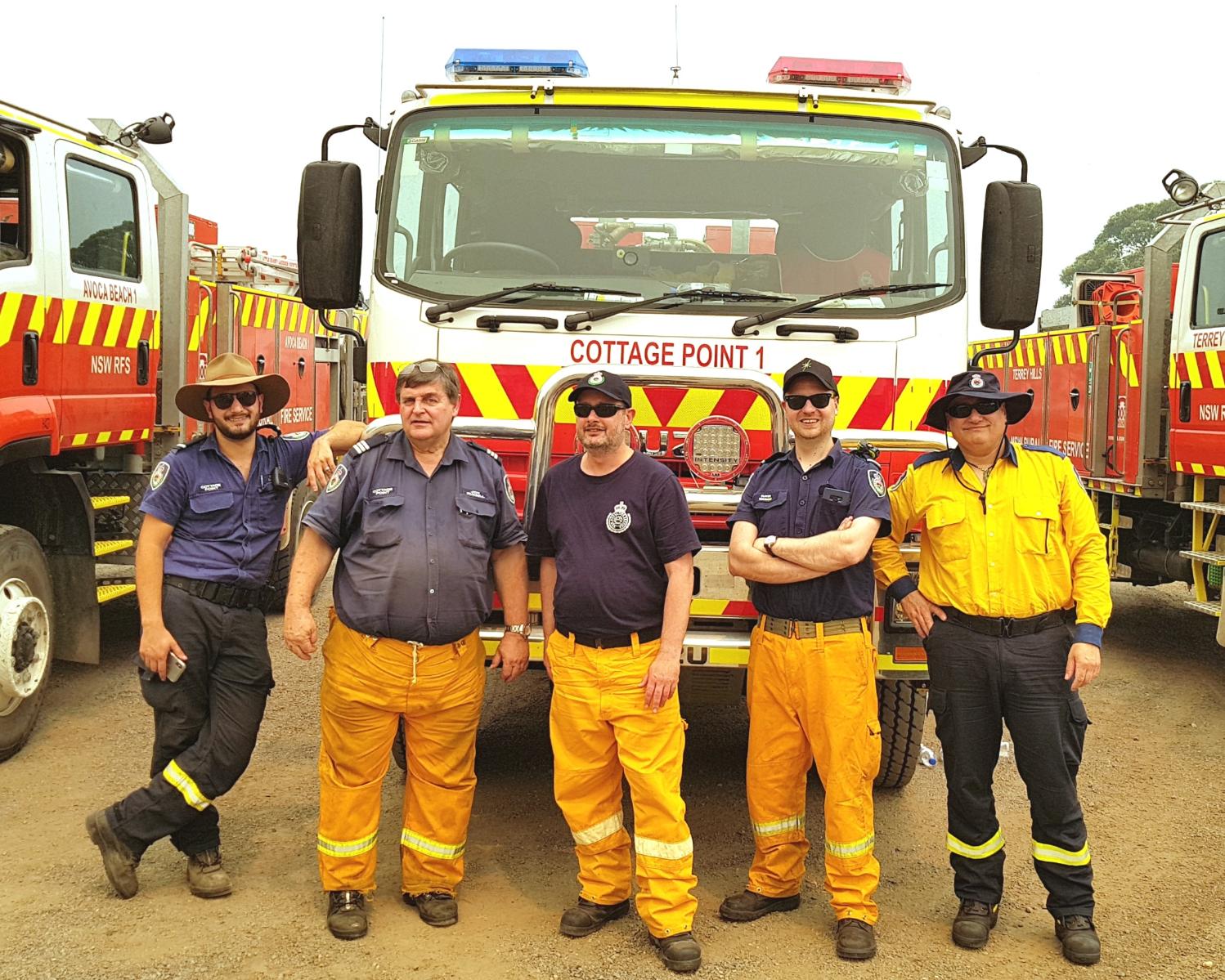
Cottage Point RFS Brigade Members - CPRFB photo
Winter In Pittwater 2020
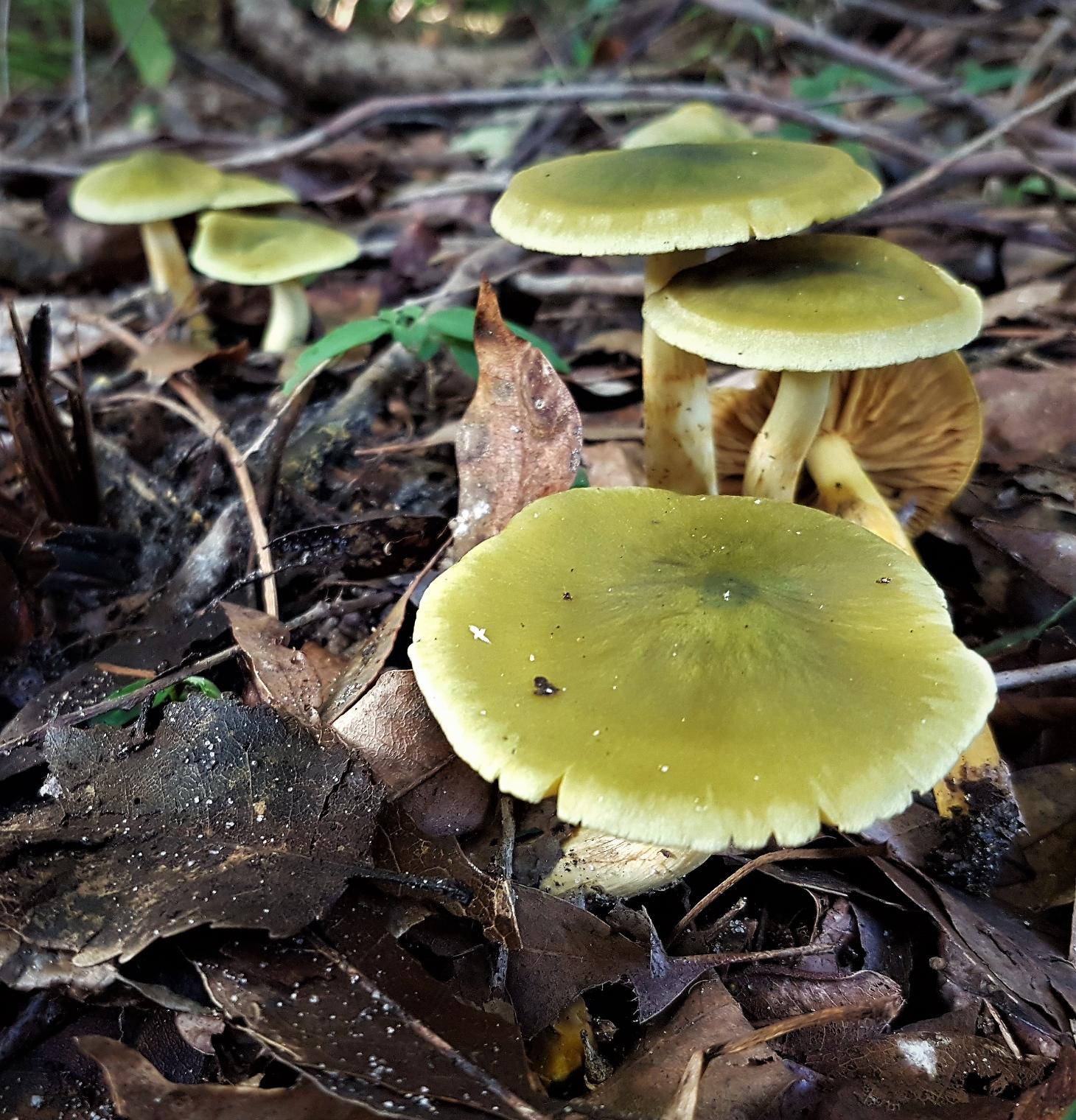
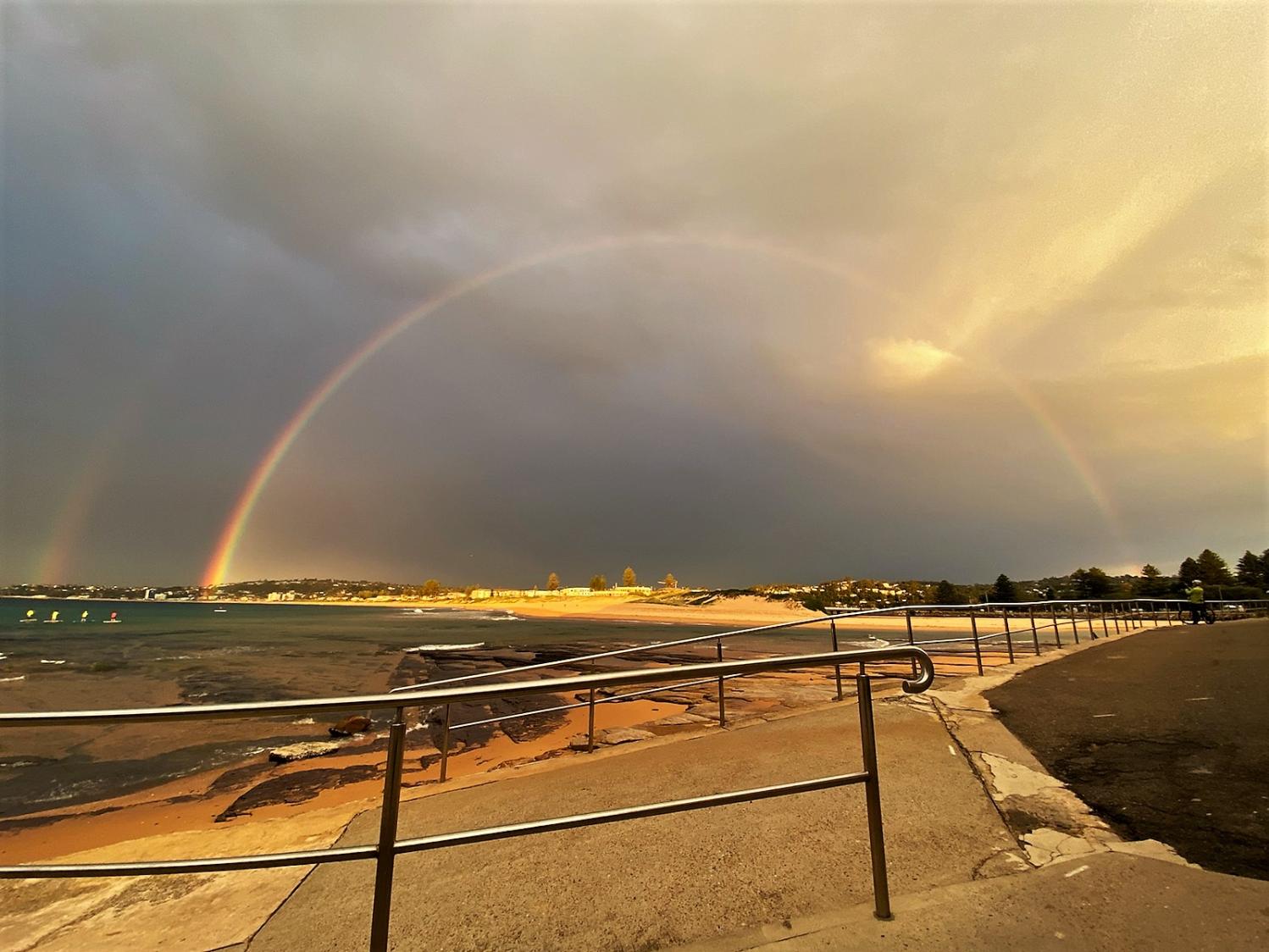
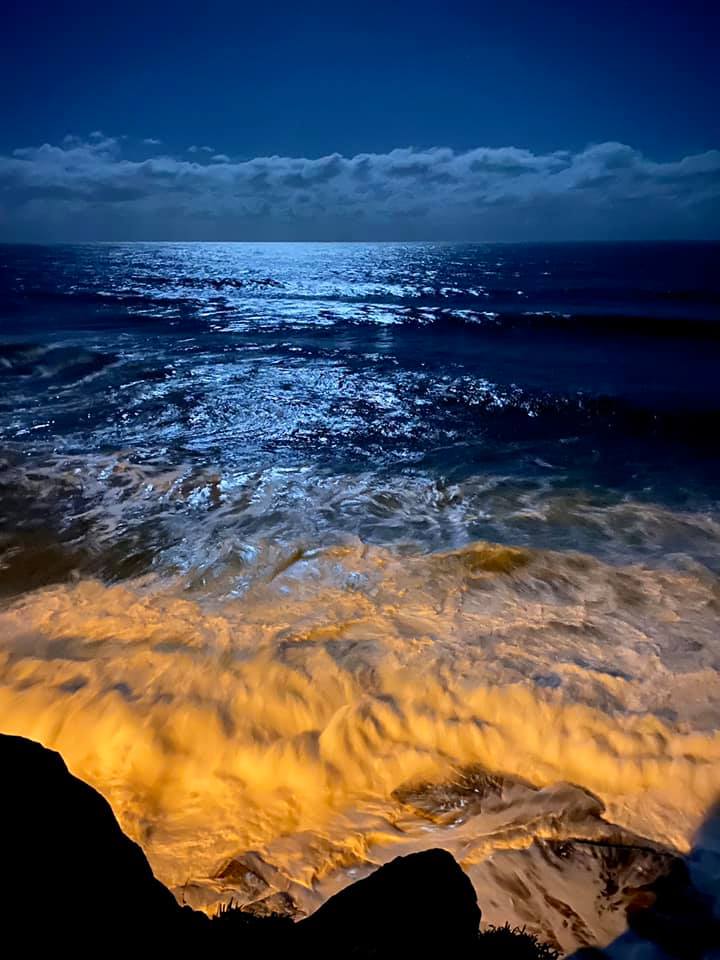
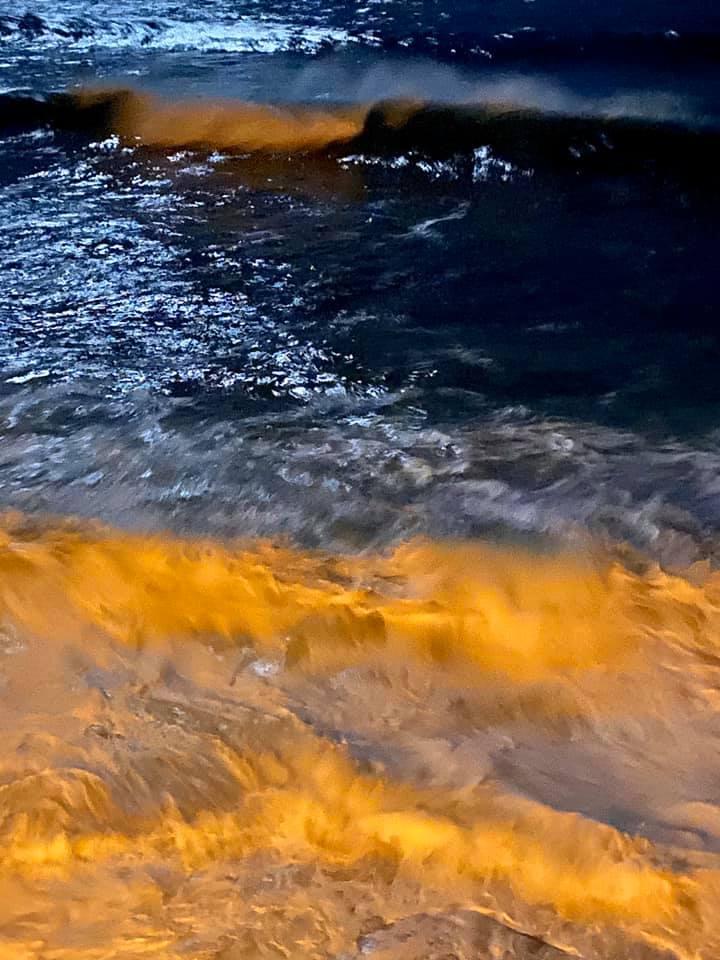
Past Features Archives (pre 2014)
Pittwater Online News was selected for preservation by the State Library of New South Wales and National Library of Australia. This title is scheduled to be re-archived regularly.
Archived Issues (2014 on) may be accessed here: pandora.nla.gov.au/tep/143700
